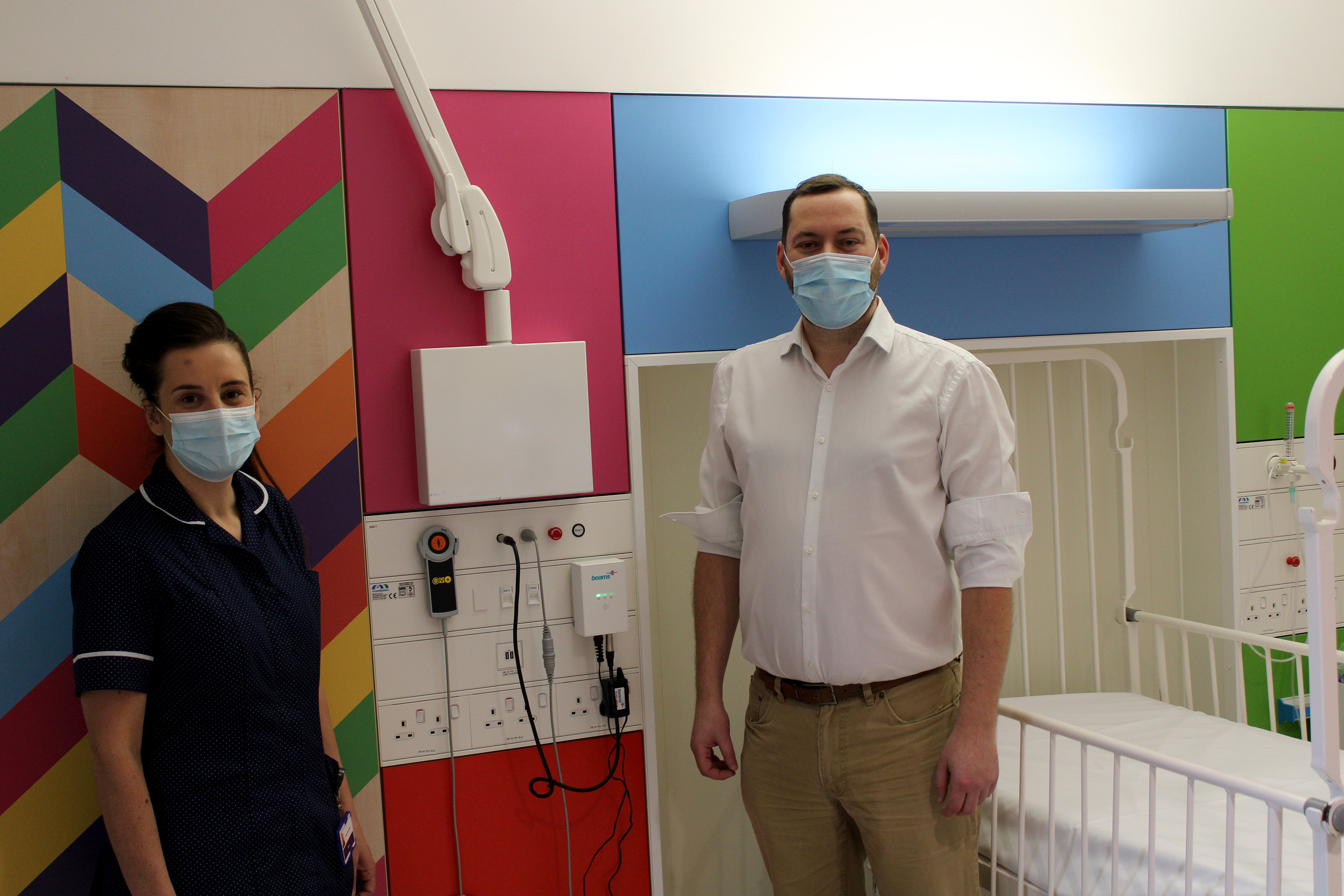Tutum Medical and Sheffield Children's Hospital colaborate to create award-winning BEAMS system to improve nursees' ability to respond to critical alarms

A new monitoring system developed between Sheffield Children’s Hospital and Tutum Medical of Chesterfield is significantly improving response times for bedside critical alarms, leading to improved patient outcomes, better workflow for nurses, and reduced costs for the hospital.
The idea for the award-winning Bedside Equipment Alarm Monitoring System (BEAMS) originally arose because of increases in the number of single rooms on the new wing at Sheffield Children’s Hospital.
Matron, Susan Levers, suggested identifying opportunities to integrate all the critical bedside monitoring systems to improve nurses’ ability to respond to alarms and positively increase the effect on staff morale amid reports of nursing staff walking wards and corridors to monitor for alarms and their inability to prioritise responses easily.
Tutum Medical created a proof-of-concept device and then eight BEAMS devices that were trialled at the hospital.
A host of benefits
During the trial, all nurses surveyed said it was a ‘benefit to the working of the ward’, and parents also reported feeling more reassured.
One patient’s parent said: “It is an excellent idea and saves me pressing the nurse call button when the alarms are going off.
“It also reassures me that when I am not here the alarms won’t go undetected."
BEAMS is the world’s only bedside equipment critical alarm monitoring system and meets the challenge hospitals currently have of alarms going unheard through walls and closed doors, due tothe increased number of single-bed patient rooms
The successful acoustic BEAMS system has now been installed in 70 single occupancy rooms across six wards in the hospital and is improving response times to critical equipment alarms and helping to ensure alarms do not go unheard.
BEAMS has reduced the number of alarms taking more than two minutes to respond to by 78%; more than five minutes by 88%, and more than 10 minutes by 95%.
Paul Rawlinson, managing director of Tutum Medical, said: “We were delighted and honoured when the hospital approached us and very proud to have developed such an effective and outstanding system.
“BEAMS is the world’s only bedside equipment critical alarm monitoring system and meets the challenge hospitals currently have of alarms going unheard through walls and closed doors, due tothe increased number of single-bed patient rooms.”
A rapid response
And he added that, due to the success of the system at Sheffield Children’s, other hospitals were now showing interest in the solution.
A failure to respond to critical bedside alarms, often due to alarm fatigue, can affect patients in many ways, such as not receiving the prescribed amount of medication, a deterioration in health, serious injury, and even death, which can lead to major litigation costs for the hospital.
BEAMS devices are designed to listen for critical bedside alarms.
When an alarm has been identified, BEAMS notifies nurses which room, and on which ward, needs attention, together with the severity of the alarm that has been triggered.
BEAMS is designed to send the notification via Wi-Fi to a nurse console display located at the nurse station and to alarm speakers along the corridors.
BEAMS gives us the assurance and support for both the nursing staff and families that their care and safety is a priority to us
And it creates its own Wi-Fi mesh network, which removes the need to interface to hospital infrastructure.
Jeff Perring, medical director at the hospital, said: "The BEAMS system improves patient care, which is a vital focus when patients are staying on our wards.
“The system is a great example of improving patient safety withinnovation.”
Supporting staff
Joanne Reid-Roberts, matron for medicine, added: “BEAMS gives us the assurance and support for both the nursing staff and families that their care and safety is a priority to us.
“Patients and parents will know that if an alarm is sounding their nurse will respond, particularly when they do not feel able to call the nurse themselves.”
The system recently won the Delivering Innovation in to Health and Care Award 2022 at the Medilink Midlands Business Awards.